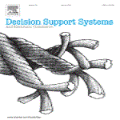Wireless devices need spectrum to communicate. With the increase in the number of devices competing for the same spectrum, it has become nearly impossible to support the throughput requirements of all the devices through current spectrum sharing methods. In this work, we look at the problem of spectrum resource contention fundamentally, taking inspiration from the principles of globalization. We develop a distributed algorithm whereby the wireless nodes democratically share the spectrum resources and improve their spectral efficiency and throughput without additional power or spectrum resources. We validate the performance of our proposed democratic spectrum sharing (DSS) algorithm over real-world Wi-Fi networks and on synthetically generated networks with varying design parameters. Compared to the greedy approach, DSS achieves significant gains in throughput (~60%), area spectral efficiency ($\sim$50\%) and fairness in datarate distribution (~20%). Due to the distributed nature of the proposed algorithm, we can apply it to wireless networks of any size and density.
翻译:无线装置需要频谱的交流。随着竞争同一频谱的装置数量的增加,几乎不可能通过当前频谱共享方法支持所有装置的吞吐需求。 在这项工作中,我们从全球化原则的启发下,从根本上审视频谱资源争议问题。我们开发了分布式算法,无线节点民主分享频谱资源,提高光谱效率和吞吐量,而没有额外的权力或频谱资源。我们验证了我们提议的民主频谱共享算法在现实世界无线网络和设计参数不同的合成生成网络上的绩效。与贪婪方法相比,DSS在吞吐量(~60%)、区域光谱效率($\sim$50 ⁇ )和数据率分配公平性(~20%)方面取得了显著收益。由于拟议算法的分布性,我们可以将其应用于任何大小和密度的无线网络。




